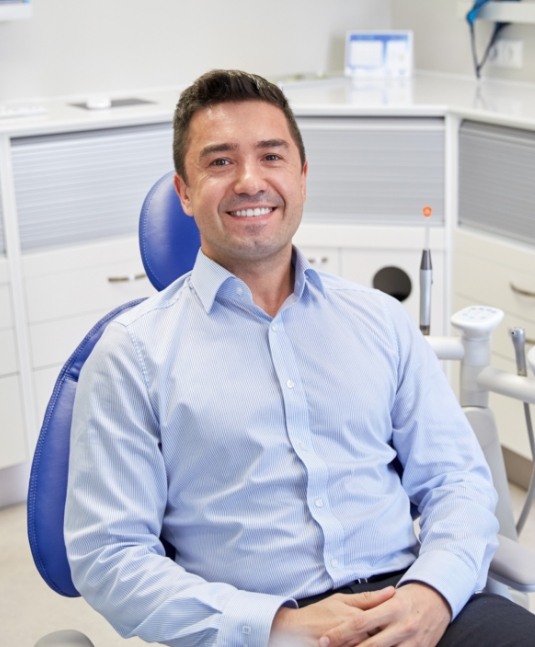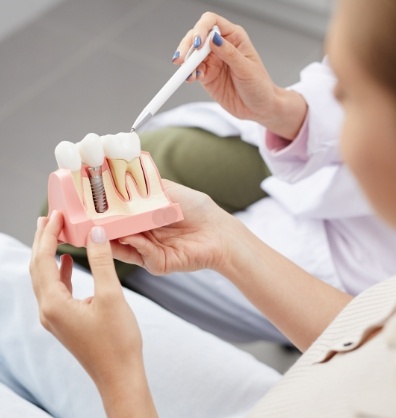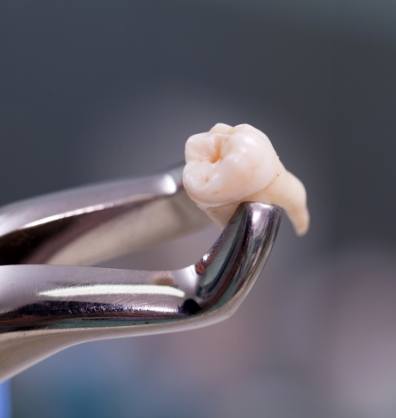Post-Op Dental Instructions San Jose
Recover in Comfort

Below you’ll find the post-operation instructions for some of our most common procedures as well as general guidelines for how to care for your oral health after any surgery. Generally, if you are experiencing severe, lingering pain or uncontrolled bleeding, you should contact us right away. Our team at the Center for Advanced Dentistry is always here to help, and we are happy to answer any of your questions!
General Guidelines for Oral Surgery

Although most oral surgery procedures are painless thanks to our sedation dentistry options, it is normal to feel some soreness, swelling, or discomfort afterward. Please keep in mind the following to ensure a rapid recovery:
- Procedures like tooth extractions often cause bleeding for an extended period. You’ll receive gauze you are to bite down upon for an hour. After an hour, you may remove the gauze; if bleeding persists, place a new gauze on the location and apply light pressure until the blood coagulates.
- Spitting, sucking from a straw, smoking, or brushing your teeth can aggravate oral wounds. You should refrain from all these activities for the first 24 hours following your surgery.
- You will receive medication upon request, but you may also take over-the-counter painkillers like Tylenol to alleviate pain. Please follow the instructions on the label and discontinue all medication if you experience an allergic reaction.
- If you are experiencing swelling, you may apply an icepack over your cheek and onto the area for intervals of 20 minutes (20 minutes on, 20 off). Swelling is usually most noticeable after the second or third day post-surgery and will diminish slowly over time.
- On the day of the surgery and for 24 hours following the procedure, you should stick to a liquid or non-chew diet. Then slowly start introducing soft foods that are high on vitamins and proteins for a few days, increasing your fluid intake until you can eat normally.
- Avoid exerting yourself and get plenty of rest.
- To maintain your oral hygiene, you may rinse your mouth gently with a warm saltwater solution (1/2 teaspoon of salt per half glass of water) after every meal and before you go to sleep. Avoid hydrogen peroxide rinses and brushing over the treatment area.
Dental Implants

- Bleeding is expected for several hours after the surgery. To slow down the bleeding, you may fold two pieces of damp gauze and press them over the extraction site, biting down gently for 30 to 60 minutes.
- Pain and discomfort after a dental implant are also to be expected. If you need medication, over-the-counter Ibuprofen, Motrin, or Advil are recommended, particularly before the local anesthetic has worn off.
- If you are prescribed an antibiotic, take it as directed, and take the entire prescription.
- After the dental implant procedure, you can enjoy water, juice, ice chips, applesauce, Jell-O, and milkshakes without a straw.
- As with all dental procedures, you should avoid smoking for as long as possible as it may lead to bleeding and slow down the healing process.
- You should avoid rinsing of any kind until the day after the surgery.
- If you are receiving fixed bridges or implants, remember you will not receive your prosthesis immediately following the surgery. You will need to attend a follow-up appointment, and until then, you should care for the surgery site and maintain a high level of oral hygiene to avoid any infections or setbacks.
Tooth Extractions

For the first 72 hours after the surgery, you should avoid disturbing the site. This means that you should not:
- Use a straw
- Drink carbonated beverages
- Rinse vigorously
- Drink alcohol
- Smoke
Take your prescribed medication as soon as you feel discomfort, preferably anticipating the dissipation of the local anesthetic.
Swelling over the mouth, cheeks, eyes, and sides of the face is not uncommon – this is a natural part of the healing process. However, you may reduce the swelling using an ice pack for intervals of 20 minutes.
On the day of the surgery, you should avoid rinsing entirely. After 48 hours, you may rinse with a saltwater solution or begin brushing very gently, avoiding the extraction site.
Elevated temperature is also normal following an extraction; you may take Ibuprofen or Tylenol to reduce it, but if it continues past a day, contact our office right away.
After an extraction, you will likely receive sutures to speed up the healing process. As your gums heal, the sutures might become dislodged. This is normal, so long as the bleeding does not recommence, you may remove the dislodged portion and discard it. You will receive a follow-up appointment to remove the sutures about a week after your procedure; this part does not require anesthesia or needles.
Something to be wary about is a dry socket. This occurs when the blood clot becomes dislodged prematurely from the tooth socket and can cause bleeding and pain that reaches your ear. If this happens, call our office right away.
Be careful if you choose to exercise. You should avoid exerting yourself for at least 72 hours after the surgery to prevent bleeding. Once you start exercising again, do so incrementally, as you will not be as nourished as you usually are, leaving you in a weakened state.
Some discoloration is another typical aspect of the healing process. You might notice that the surgery site might become lighter or even look bruised. This generally goes away after a couple of days and can be improved by using warmth and moisture. In some cases, bruising can take up to 14 days to subside.
